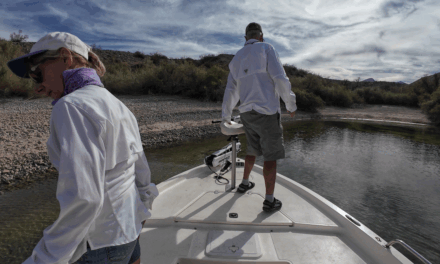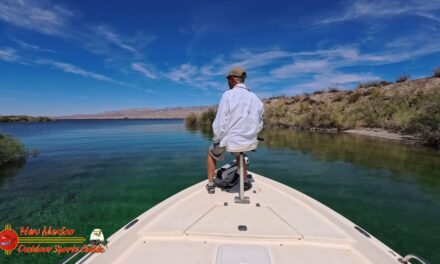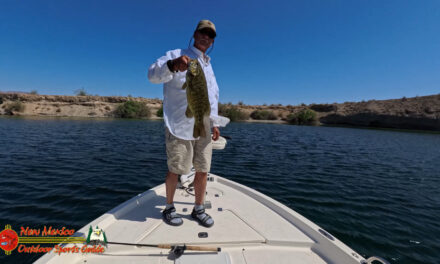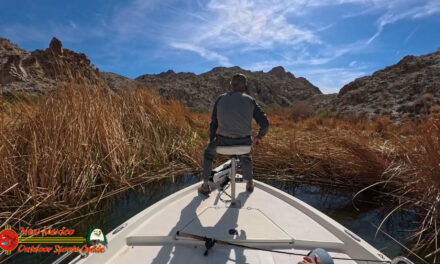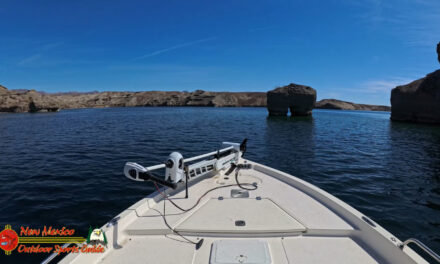Hydrilla is an exotic plant that multiplies to a point where it can choke a lake, killing other native plants and whole fish populations. It also becomes a nuisance to boaters, water-skiers and swimmers. Developers despise it because it can make otherwise ideal lakefront property unappealing to potential buyers. Eventually, if allowed to grow unchecked, it can kill a lake.
Different measures have been taken to rid Texas lakes of this predator. Shortly after its impoundment, Lake Conroe was invaded by Hydrilla. The aggressive plant restricted boating activities when allowed to grow without restraint. It also reduced water quality and prevented the development of desirable native plant communities. In an effort to provide relief from the overabundance of Hydrilla, Texas A & M University conducted a research project that included the stocking of 270,000 plant-eating grass carp. The Texas Parks &Wildlife Department all too often seeks to solve this problem with total eradication of the nuisance plant with the use of grass carp, which eat the problem plant AND all the vegetation in the lake, or chemical methods, which have proven to cause MUCH more harm than good (causing birth defects, liver disease, cancerous tumors, etc.).
So what’s to be done? Grass carp have been described as “the least acceptable method of non-chemical control,” but there are other methods of non-chemical control, one of which is the use of a Hydrilla Harvester.
The Hydrilla Harvester
Recently, Governor George Bush, an angler of some repute, intervened to postpone the application of chemicals to kill Hydrilla in Lake Bastrop. Bush arranged for the Lower Colorado River Authority to borrow a Hydrilla Harvester from the Tennessee Valley Authority.
Ray Scott, founder of Bass Anglers Sportsman Society, told the Texas B.A.S.S. Federation, “It’s a state-of-the-art machine and costs $150,000-but the TVA will loan it to us for the cost of transportation and the operator.”
Mark Rose general manager of the LCRA, is anxiously awaiting the test on Lake Bastrop, scheduled for June 10-11. If the harvester proves inefficient, Rose says he will have to use the herbicide Sonar to rid Lake Bastrop of the unwanted Hydrilla. Sonar is a pesticide that has received very negative attention when used on other lakes. It has been linked to birth defects, cancerous brain tumors, and various other ailments, in addition to massive fish kills.
This machine reportedly can cut one acre of Hydrilla per hour to a depth of five to six feet. It cuts the vegetation, squeezes the water from it, shreds it, then puts the shredded vegetation back in the water. The harvester does not hurt the fish population either, according to the Department of Natural Resources in Minnesota, where the harvester has been used for years.
The demonstration at Lake Bastrop is not scheduled until June 10 – 11, but Texas officials are already sold on the idea. Dr. Larry McKinney, the Senior Director for Aquatic Resources at the TP&WD, is already considering purchasing a harvester for testing as a partial control of noxious aquatic vegetation. He and Phil Durocher, the Director of TP&WD’s Inland Fisheries Division, plan to discuss purchase of the machine with the Guadalupe-Blanco and Lower Colorado River Authorities. Several Texas Conservation societies have pledged to help in the purchase also.
The harvesters have been around since about 1902, according to Pat McCarty of Texas Black Bass Unlimited. They were created from a need to knock down weeds so that clean ice could be cut from frozen lakes. These massive machines have evolved considerably in the last several decades. By efficiently cutting and removing Aquatic vegetation, harvesting offers an environmentally sound, cost effective and practical solution to the control of excessive plant growth.
Harvesters have been used extensively in the Great Lakes region and in the northeast, with some very positive results. Mr. B Rendan of Woodbridge, Virginia, is very happy with the harvester his community purchased. “Harvesting is selective for fish management – it leaves habitat available for fish.”
Mr. D. Heise of LaPorte, Tennessee, says, “The quality of fishing has improved [on City Lake since we started using the harvester], and the fishing areas are more accessible now.”
Mr. J. Wardlaw of Dewey Lake in Dewagiac, Michigan, has been using the Hydrilla Harvester for years. He comments, “We have bigger fish of all types now because of reduced cover.”
These harvesters are presently sold by an organization called D & D Products, Inc., located in Wisconsin. John R. Dauffenbach, founder of D & D, began developing equipment to battle water quality problems in the 1950’s. D & D is the oldest manufacturer of aquatic plant harvesters in the world and boasts a customer list that includes the whole of the United States and 40 countries worldwide. A full range of sizes are available to suit every application. The machines have a cutting width of up to 10 feet and weigh up to 14,000 lbs.
The harvester that Dr. McKinney proposes to buy will be somewhat smaller than the machine borrowed from Tennessee for Lake Bastrop. “If we make a purchase, says McKinney, “we’ll need one that can handle bumping into stumps and … other situations….It’s likely the TP&WD will use some of its current vegetation crews as operators.”
Despite the support already in motion for the purchase, McKinney still wants to show some caution. “I want to try a harvester for a year or so at a few smaller state park lakes, and the river authorities can use it where they want. I want to try cutting some ‘lanes’ through grassy areas and study the results.”
McKinney plans to study the effects of the harvester for a year or two.
– Lake Mohave
– Lake Mohave


